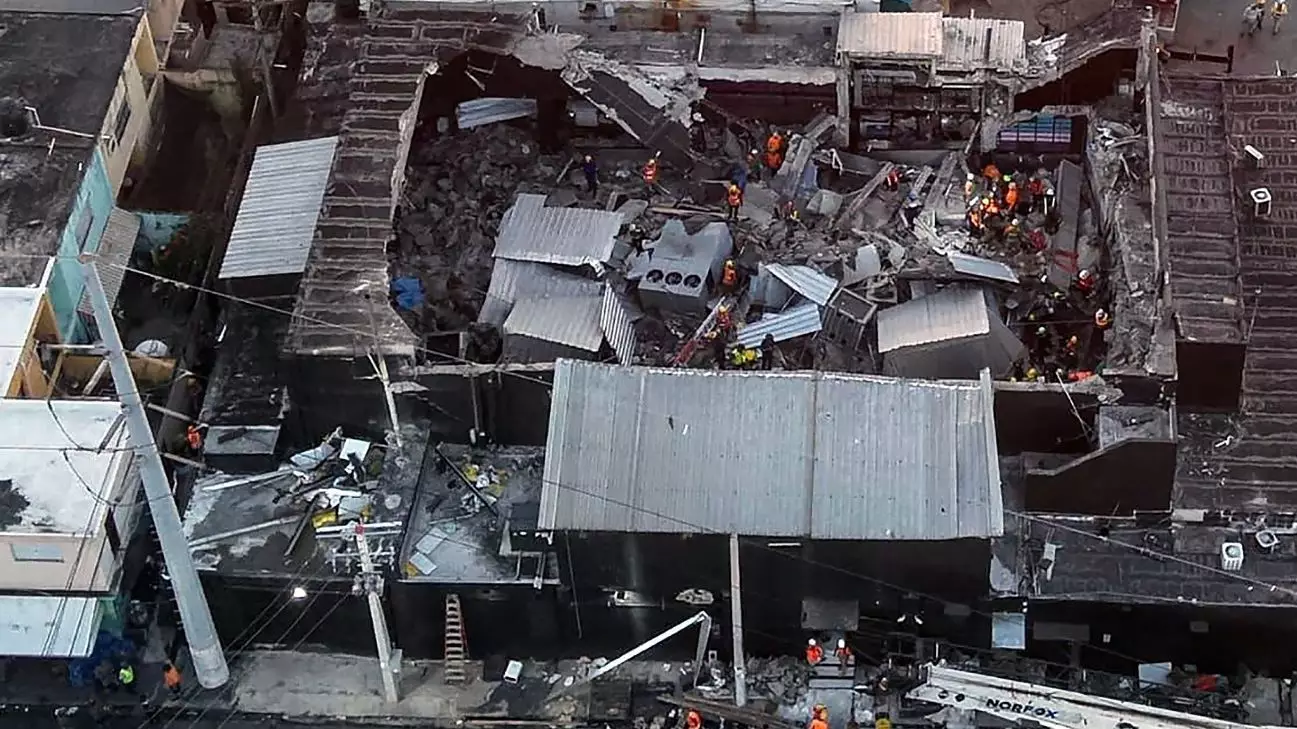In the early hours of a seemingly ordinary Tuesday, tragedy struck the heart of Santo Domingo as the iconic Jet Set nightclub became the scene of a devastating disaster. With the roof collapsing during a lively merengue concert, the joyous revelry was abruptly transformed into chaos, claiming the lives of over 70 individuals, including former major league baseball stars Octavio Dotel and Tony Blanco. Among the victims was Nelsy Cruz, sister to the celebrated MLB All-Star Nelson Cruz, amplifying the sorrow that permeated the Dominican community. This calamity is a harsh reminder that beneath the vibrant facade of social and cultural triumphs lies a precarious reality, where safety can hang by a thread, putting lives at risk.
The sheer magnitude of this disaster is shocking, with reports confirming at least 79 fatalities and around 160 injuries. The spontaneity of life is evident in such moments, where joy instantly morphs into grief. How is it that a night meant for celebration turned into one of mourning? Such tragedies raise questions that pierce deeper than grief alone; glaring safety protocols and regulatory negligence must be examined. It’s not merely a statistic when innocent lives are lost—they are stories left untold, dreams extinguished before they could flourish.
The Stark Reality of Safety Regulations
As the dust settles and the rescue efforts continue, one cannot help but ponder the underlying causes of this catastrophic event. What failed at the Jet Set nightclub? Were safety regulations in place, and were they actually enforced? In the wake of this disaster, it is imperative for local authorities to scrutinize safety protocols in entertainment venues, which often cater to large crowds. The devastating collapse should act as a catalyst for change, reminiscent of past calamities that often result in hollow promises from establishments and administrations to improve conditions—yet seldom do we witness real reform.
The outpouring of condolences from Major League Baseball and the Dominican Baseball League reflects a deep-rooted connection to the players and communities affected, but it also highlights the troubling reality of transient mournings without consequent action. Statements from Commissioner Rob Manfred and MLB Players Association Executive Director Tony Clark carry weight, but they must also lead to concrete reforms that prioritize safety over profits. We must demand accountability from those responsible for such venues, to ensure that this tragedy does not stand alone in its horror.
A Community Torn Apart
The emotional toll of this disaster cannot be understated. The lives of Octavio Dotel and Tony Blanco resonate far beyond their athletic careers; they were fathers, brothers, friends—individuals who enriched the Dominican Republic’s cultural landscape and represented its relentless spirit on international stages. Their sudden absence creates an unspeakable void among family and community, a collective grief that reaches the hearts of fans and citizens alike.
Nelsy Cruz’s heart-wrenching call to the President just moments after the roof fell speaks volumes to the panic and chaos that ensued. It presents a stark image not only of vulnerability but of the desperate plea for action in the face of such dire consequences. The unexpectedness of her death underscores how fragile our grasp is on life and how quickly the fabric of our existence can crumble. We are called to reflect on this moment—not just in mourning, but in a promise for change.
The Call for Structural Change
As rescue operations continue and the authorities sift through the rubble in search of survivors, we must challenge ourselves and our leaders to ensure that institutions prioritize the safety and security of those they serve. It is essential for damage to serve a purpose, transforming our mourning into actionable steps to reform building codes, enforce regulations, and elevate the standards of safety for public venues in the Dominican Republic and beyond.
This disaster acts as a grim wake-up call, reminding us that a society cannot thrive when these basic protections are neglected. Amidst the tragic backdrop of loss, there lies an opportunity—an imperative to restructure and claim responsibility not only for the lives lost but toward a future where entertainment does not come at the cost of safety. This moment must inspire a unified movement toward progress, ensuring that history does not repeat itself as we remember the lives of those taken far too soon.


Leave a Reply